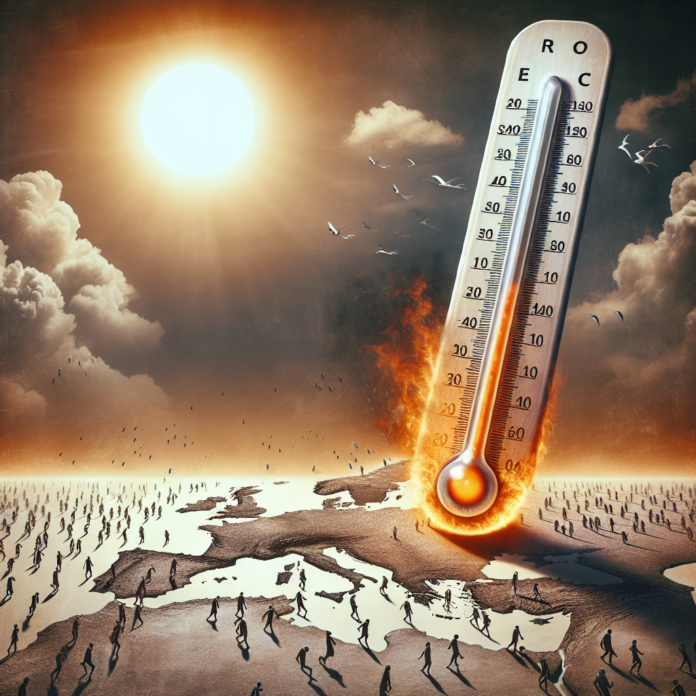Millions of Europeans at Risk of Heat-Related Deaths by 2100
Study: Millions of Europeans Could Die from Heat by 2100
A recent study has raised alarming concerns about the impact of climate change on public health in Europe, projecting that millions of people could succumb to heat-related illnesses by the year 2100. Researchers emphasize that this potential crisis is largely driven by rising global temperatures, which are expected to escalate due to continued greenhouse gas emissions.
The study indicates that, without significant action to mitigate climate change, Europe could face extreme heatwaves that may lead to a dramatic increase in mortality rates. Vulnerable populations, such as the elderly and those with pre-existing health conditions, are particularly at risk. The research highlights that cities, where heat tends to be more concentrated due to urbanization, could be hotspots for heat-related deaths.
Rising Temperatures and Health Risks
The European Centre for Disease Prevention and Control has noted that heatwaves can exacerbate existing health conditions, including respiratory and cardiovascular diseases. Additionally, high temperatures can lead to heat exhaustion and heat stroke, which can be fatal without prompt medical intervention. The study’s authors stress the importance of preparing healthcare systems for the expected rise in heat-related health issues.
Climate scientists predict that average temperatures in Europe could rise by 2 to 4 degrees Celsius by the end of the century if current trends continue. This scenario would not only increase the frequency and intensity of heatwaves but also lead to longer durations of extreme heat exposure. The anticipated rise in temperatures is expected to have far-reaching implications, including changes in agricultural productivity, water supply, and biodiversity.
Mitigation Strategies
To combat this looming crisis, experts advocate for urgent and comprehensive climate action. Strategies include reducing greenhouse gas emissions, transitioning to renewable energy sources, and implementing city planning measures that enhance urban resilience to heat. Green spaces, such as parks and urban forests, can help lower temperatures in cities and provide residents with cooler environments during heatwaves.
Furthermore, public health campaigns to educate the population about the risks associated with extreme heat and the importance of staying hydrated and cool are essential. Governments and health organizations must also develop heat action plans that include early warning systems and community outreach programs aimed at protecting the most vulnerable.
The Role of Policy and International Cooperation
Effective policy measures at both national and international levels are critical in addressing climate change. The European Union has set ambitious targets for reducing carbon emissions and promoting sustainable practices, yet the implementation of these measures must be accelerated to avert the predicted crisis. International cooperation is also vital, as climate change knows no borders and requires a collective response from all nations.
In conclusion, the findings of this study serve as a crucial reminder of the urgent need to address climate change and its health implications. By taking decisive action now, Europe can help protect its population from the severe consequences of extreme heat in the future. The time to act is not tomorrow, but today.
